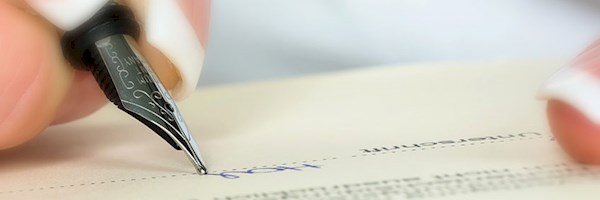As they say, nothing is certain but death and taxes. And, while some may try to elude the taxman, none of us have any control over the time or manner of our passing. We can however ensure that our affairs are in order and that those left behind are cared for, which is why it is so important to have a will.
Timothy Akinnusi, Executive Head of Sales and Client Value Management at Nedbank Home Loans, explains that if you die without a will, an administrator will have to be appointed to administer your estate – which will then be distributed according to the laws of intestate succession. As such, your assets may not be distributed as you would have wished. It also means that the process will be delayed and that there will be additional expenses and unnecessary frustration.
With this in mind, it’s vital to draw up a will and keep it up to date, says Akinnusi. Alongside this, you should also prepare the following in relation to any immovable property you may own:
State where your title deeds are kept
+
Record any outstanding bonds and all insurance policies
File up-to-date rates and taxes receipts
+
State where your water, lights and refuse deposit receipts are kept
Record the details of any leases on properties that you own
+
State who collects your rent
State who compiles your yearly accounts
Having a will in place will also assist surviving joint bond holders, says Akinnusi: “In order for the bond to be transferred into the surviving joint bond holder’s name, that person would have to go to their bank and apply for an endorsement. Once all the necessary documentation is provided, the bond would then cede to the surviving bond holder within 10 to 14 working days. If there is no will, it would take significantly longer for the bond to be transferred as the estate would have to first be administered and wound up.”
There are various other aspects relating to property of which those drawing up a will are not always aware, points out Grant Gunston, Senior Partner of legal firm Gunston Attorneys. For instance, where a property is transferred to heirs, this can only take place at the end of the winding up process: ie, when the liquidation and distribution accounts have lain open for inspection and objection, for the prescribed period of time. If there are no objections, the Master of the Court authorises the executor to go ahead with the distribution, including the transfer of the property.
Sale of property in deceased estates
If the property is sold out of the estate to a buyer, this can take place before the will has lain for inspection, but the proceeds will then still have to go into the estate and be distributed to heirs at the end of the process, explains Gunston.
He adds that no transfer duty is payable on property that is bequeathed to heirs. This applies even when the heirs agree to distribute the property or properties among themselves in a different way to that envisaged by the testator. Conveyancing fees are however still payable. If the heirs decide to sell the property (out of the estate) to an outsider, transfer duty will then apply – but in most cases this is paid for by the buyer.
Simply put, there’s no excuse not to have a will, says Akinnusi. You can speak to your bank or your attorney about drawing up a will, which they will hold on your behalf. Doing so will ensure that everything in your estate goes to the right people timeously, and without extra cost, which will prevent additional heartache and worry during a very stressful time.
